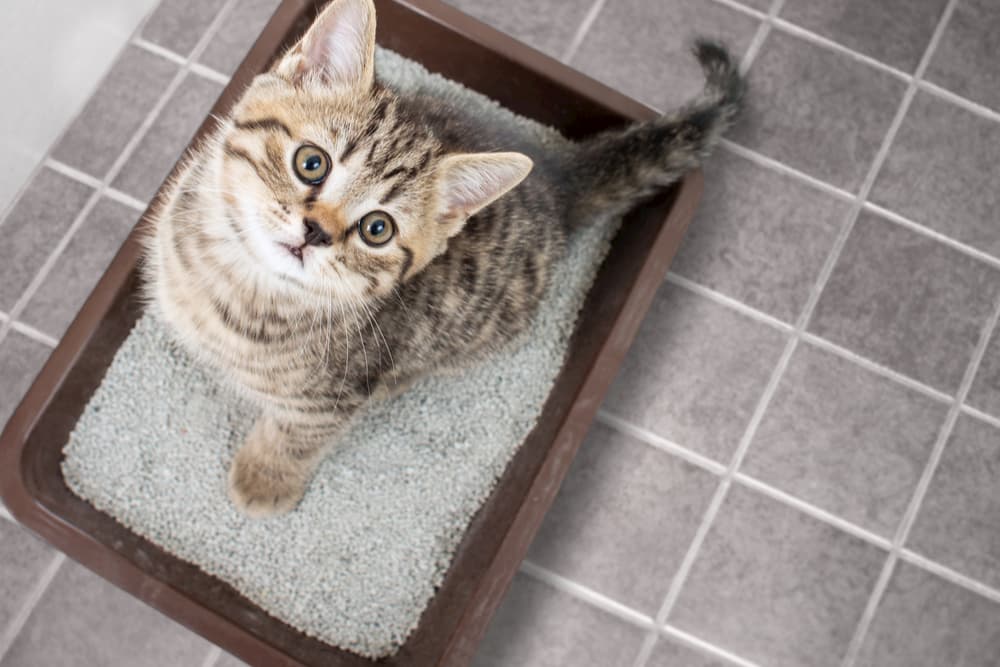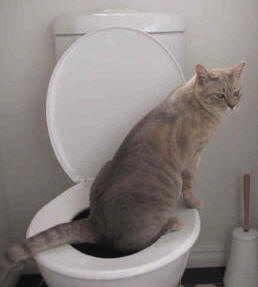Don't Flush Cat Poop Down Your Toilet - Maintain Your House's Plumbing System
Don't Flush Cat Poop Down Your Toilet - Maintain Your House's Plumbing System
Blog Article
What're your ideas regarding How to Dispose of Cat Poop and Litter Without Plastic Bags?

Introduction
As feline proprietors, it's essential to be mindful of exactly how we dispose of our feline friends' waste. While it might appear hassle-free to flush feline poop down the bathroom, this technique can have destructive consequences for both the setting and human health and wellness.
Alternatives to Flushing
Luckily, there are safer and extra responsible methods to deal with pet cat poop. Consider the adhering to alternatives:
1. Scoop and Dispose in Trash
The most common method of getting rid of cat poop is to scoop it into an eco-friendly bag and throw it in the garbage. Be sure to utilize a specialized clutter scoop and get rid of the waste quickly.
2. Usage Biodegradable Litter
Select eco-friendly feline trash made from products such as corn or wheat. These clutters are eco-friendly and can be securely thrown away in the trash.
3. Hide in the Yard
If you have a lawn, consider burying feline waste in a marked location away from veggie gardens and water sources. Be sure to dig deep enough to avoid contamination of groundwater.
4. Mount a Pet Waste Disposal System
Buy a pet waste disposal system particularly made for cat waste. These systems make use of enzymes to break down the waste, decreasing smell and ecological impact.
Health and wellness Risks
Along with ecological problems, purging cat waste can additionally posture health threats to human beings. Pet cat feces might include Toxoplasma gondii, a bloodsucker that can create toxoplasmosis-- a possibly extreme illness, especially for expectant females and people with weakened immune systems.
Environmental Impact
Purging cat poop introduces harmful microorganisms and bloodsuckers into the water supply, presenting a considerable threat to marine environments. These impurities can adversely impact marine life and concession water top quality.
Final thought
Responsible animal possession prolongs past offering food and shelter-- it also includes correct waste administration. By avoiding purging cat poop down the bathroom and choosing different disposal approaches, we can lessen our environmental impact and protect human health and wellness.
Why Can’t I Flush Cat Poop?
It Spreads a Parasite
Cats are frequently infected with a parasite called toxoplasma gondii. The parasite causes an infection called toxoplasmosis. It is usually harmless to cats. The parasite only uses cat poop as a host for its eggs. Otherwise, the cat’s immune system usually keeps the infection at low enough levels to maintain its own health. But it does not stop the develop of eggs. These eggs are tiny and surprisingly tough. They may survive for a year before they begin to grow. But that’s the problem.
Our wastewater system is not designed to deal with toxoplasmosis eggs. Instead, most eggs will flush from your toilet into sewers and wastewater management plants. After the sewage is treated for many other harmful things in it, it is typically released into local rivers, lakes, or oceans. Here, the toxoplasmosis eggs can find new hosts, including starfish, crabs, otters, and many other wildlife. For many, this is a significant risk to their health. Toxoplasmosis can also end up infecting water sources that are important for agriculture, which means our deer, pigs, and sheep can get infected too.
Is There Risk to Humans?
There can be a risk to human life from flushing cat poop down the toilet. If you do so, the parasites from your cat’s poop can end up in shellfish, game animals, or livestock. If this meat is then served raw or undercooked, the people who eat it can get sick.
In fact, according to the CDC, 40 million people in the United States are infected with toxoplasma gondii. They get it from exposure to infected seafood, or from some kind of cat poop contamination, like drinking from a stream that is contaminated or touching anything that has come into contact with cat poop. That includes just cleaning a cat litter box.
Most people who get infected with these parasites will not develop any symptoms. However, for pregnant women or for those with compromised immune systems, the parasite can cause severe health problems.
How to Handle Cat Poop
The best way to handle cat poop is actually to clean the box more often. The eggs that the parasite sheds will not become active until one to five days after the cat poops. That means that if you clean daily, you’re much less likely to come into direct contact with infectious eggs.
That said, always dispose of cat poop in the garbage and not down the toilet. Wash your hands before and after you clean the litter box, and bring the bag of poop right outside to your garbage bins.
https://trenchlesssolutionsusa.com/why-cant-i-flush-cat-poop/

I'm very interested in Can You Flush Cat Poo or Litter Down the Toilet? and I really hope you enjoyed the blog entry. If you please set aside a second to distribute this article if you enjoyed it. I love reading our article about How to Dispose of Cat Poop and Litter Without Plastic Bags.
Free Estimates Report this page